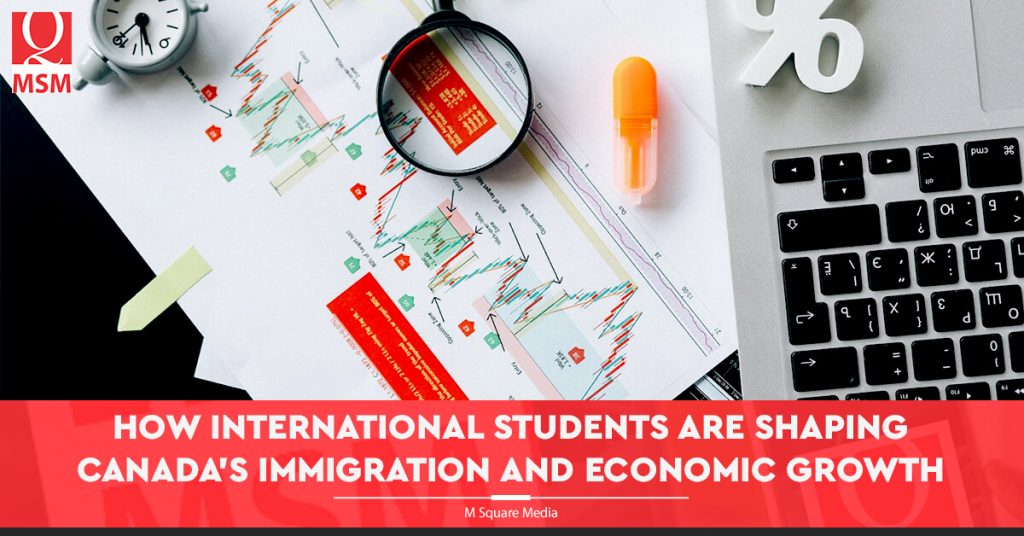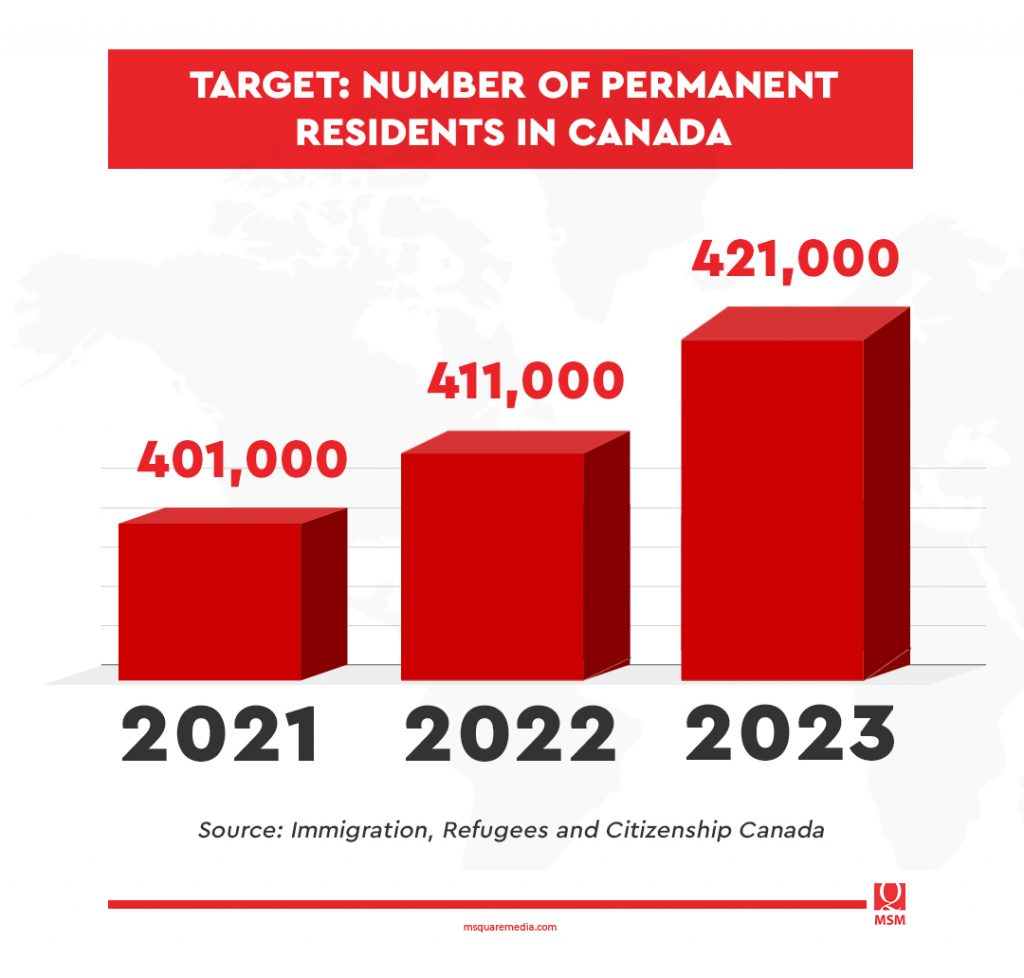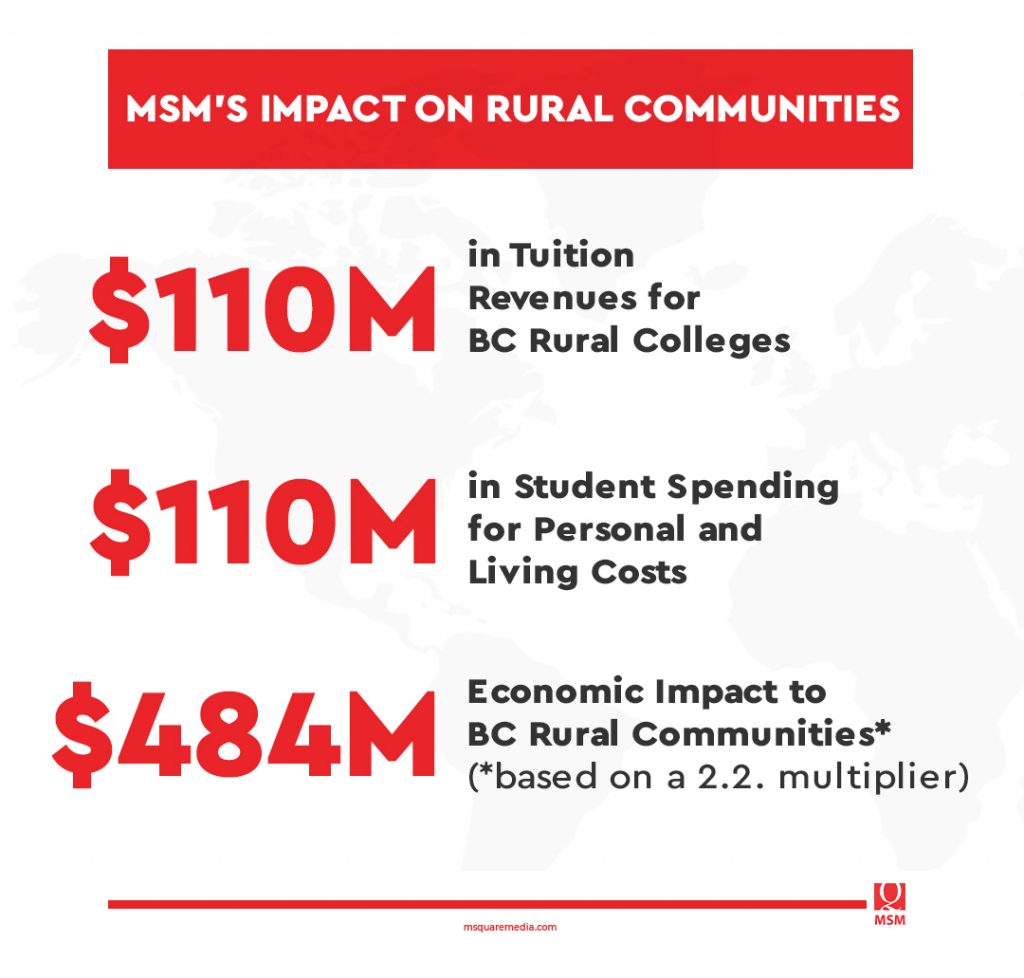
How International Students Are Shaping Canada’s Immigration and Economic Growth
In the past few decades, international students have become a steadily rising source of income for destination countries. The economic benefits that they bring to institutions and the communities where they study have also been highlighted more so with the impact of the pandemic.
Key Takeaways
- Canada is one of the world’s most popular study destinations
- International education in Canada plays a role in the country’s immigration and population
- Most international students in Canada spend between $23,600 to $27,600 per year for a post secondary education tuition.
- Steps to ensure immigration and population numbers rebound include attracting international students, modernizing their application process, and supporting the national government
As for Canada, one of the world’s most popular study destinations, ensuring international student enrollments has become a priority. In fact, the decline in enrollment due to the pandemic had eased in the past year. Much of this is due to the country relaxing its border restrictions, among other variables. However, international students still need a quarantine plan at Canada border.
International education in Canada also has a role to play in the country’s rebounding population. According to a June 2021 report by RBC Economics, “Canada’s population grew strongly” in the first quarter “as international students returned.” This is all complementary to the immigration goals of the country, wherein it targets to attract 400,000 immigrants annually until 2023.
Economic Growth
Before the onset of the COVID-19 pandemic, international students contributed $15 billion to the Canadian economy in 2017. It is estimated that international students comprised about 16.5 percent of students in Canadian schools in 2018.
In a post-COVID environment, economies are expecting to rebound. Economic growth is expected to continue its momentum from 2021 moving forward, as international students play a very important role in the immigration and economic growth of Canada.
It could be estimated that there are about 640,000 international students in Canada who not only contribute to the economy but also to the nation’s diversity of culture and talent. This body contributes $22 billion to the Canadian economy every year, and supports about 200,000 jobs.
“Immigration is essential to getting us through the pandemic, but also to our short-term economic recovery and our long-term economic growth,” Immigration Minister Marco Mendicino has said. “Canadians have seen how newcomers are playing an outsized role in our hospitals and care homes and helping us to keep food on the table.

Rural Opportunities
Looking deeper into the rural areas of Canada, there is a clear opportunity for growth. The IRCC revealed data that see Canada’s most populous province, Ontario, getting the lion’s share of new permanent residents in 2021.
In response, provincial governments are seeking ways to support rural colleges, communities, and their economies.
Former Minister of Rural Economic Development Bernadette Jordan once expressed her outlook on growth opportunities in rural areas, which mentions how improving higher education in these locations may aid in the overall development of the country.
“Rural communities are key to Canada’s economy, culture, and social fabric. They work with urban centres to make our country the successful, prosperous place that it is,” said Jordan, adding that feedback from those living in rural areas include their youths moving away to urban areas for better education opportunities.
International education platform M Square Media (MSM) has a history of working with rural partners. MSM started its journey with Northern Lights College, Northern British Columbia (BC) in 2012, before adding three more rural colleges and one rural university partner to their portfolio in this province.
Since 2013, MSM services have resulted in $110M in tuition revenues to BC rural colleges alone. Student spending for personal and living costs in these communities will have matched the $110M; with another spin off economic impact of $484M to BC rural communities (based on a 2.2 multiplier). MSM also provides services to rural and urban communities across the nation.

Post-COVID Response
Higher Education Institutions in Canada have to work closely with the nation’s policymakers in ensuring that international students have access to a healthy lifestyle and education, post-COVID. There is greater emphasis for effective and efficient student services in order to serve the needs of international students.
The pandemic may put pressure on the health of international students in Canada, but the struggles go beyond health. The pandemic puts pressure on the students when it comes to language barriers, lack of social networking opportunities, and the financial, emotional and mental struggles that come with leaving their home countries.
If Canada’s collective response proves successful, it will continue to retain first, a steady flow of revenue (an international student in Canada spends about $23,600 – $27,600 per year to attend a postsecondary institution) and second, a dedicated national workforce (61 percent of students plan to work in Canada, according to a report by the Canadian Bureau of International Education). The nation’s immigration process will benefit greatly from these initiatives.
Conclusion
In June 2021, the Colleges and Institutes Canada drafted recommendations to the IRCC for “economic recovery and skilled labour immigration” that fall under three main categories, namely:
- Attracting international students post COVID-19
- Modernizing the international student application process
- Supporting Canada’s ambitious immigration levels plan
With a united front of higher education institutions and government and policymakers, Canada aims to be a globally competitive market presence for international education in 2022 and beyond. (DONNA HOOKER)
Donna has worked in the international education field for 30 years. She has a comprehensive knowledge of policy and practice in the public post-secondary education system in British Columbia, Canada and worldwide. She is a past board chair for the BC Centre for International Education and has held senior management roles at BC Institute for
Technology, Vancouver Community College, and most recently at Capilano University.
Donna has demonstrated excellence in leadership with a focus on international education and services marketing, as well as in her role as interim Dean of Business for three years at Vancouver Community College. Donna holds an MBA with a strategic focus on Services Marketing and International Education and has facilitated the professional development of others by teaching general business and service marketing in Canada as well as internationally. Donna joined M Square Media as President after having had an excellent first-hand experience as an MSM client.
Data sources:
Munroe, Ian. (2021, August 4) Number of international students studying in Canada looks set to rebound. University Affairs. Retrieved from https://www.universityaffairs.ca/news/news-article/number-of-international-students-studying-in-canada-looks-set-to-rebound/
Thevenot, S. (2021, July 26) International students still need quarantine plan at Canada border. CIC News. Retrieved from https://www.cicnews.com/2021/07/international-students-still-need-quarantine-plan-at-canada-border-0718721.html#gs.bxxzoo
Canada’s population grew strongly in Q1 as international students returned (2021, June 17) RBC Economics. Retrieved from http://www.rbc.com/economics/daily-economic-update/CA_Population_JUN2021.pdf
Canada Immigration Levels Plan 2021-2023. CanadaVisa. Retrieved from https://www.canadavisa.com/canada-immigration-levels-plans.html?_ga=2.73357139.1792233244.1632293538-1627225367.1628751585
How international students make decisions about staying in Canada (2021, May 19). University of Waterloo. Retrieved from https://www.eurekalert.org/news-releases/814366
Kohli, P. (2021, September 17) Economic Overview of Canada and What it means for International Students. Shiksa Study Abroad. Retrieved from https://studyabroad.shiksha.com/economic-overview-of-canada-and-what-it-means-for-international-students-articlepage-970
Government of Canada announces plan to support economic recovery through immigration. (2021, October 30) Government of Canada. Retrieved from https://www.canada.ca/en/immigration-refugees-citizenship/news/2020/10/government-of-canada-announces-plan-to-support-economic-recovery-through-immigration.html
TR to PR Pathway: Canada Welcomes Nearly 11,500 New Permanent Residents (2021, December 31) Immigration.ca. Retrieved from https://www.immigration.ca/tr-to-pr-pathway-canada-welcomes-nearly-11500-new-permanent-residents
Rural Opportunity, National Prosperity: An Economic Development Strategy for Rural Canada (2019, May 27) Government of Canada. Retrieved from https://www.infrastructure.gc.ca/rural/strat-eng.html#what14
International undergraduate tuition fees by field of study (2021, September 8) Statistics Canada. Retrieved from https://www150.statcan.gc.ca/t1/tbl1/en/cv.action?pid=3710000501
Esses, V. (2018, June) Retaining International Students in Canada Post-Graduation: Understanding the Motivations and Drivers of the Decision to Stay. Canadian Bureau for International Education. Retrieved from https://cbie.ca/wp-content/uploads/2018/06/Intl-students-post-graduation-RiB-8-EN-1.pdf
The Role of International Students in supporting Canada’s immigration and inclusive economic growth objectives (2021, June) Colleges and Institutes Canada. Retrieved from https://collegesinstitutes.sharepoint.com/extcollab/Shared%20Documents/Forms/AllItems.aspx?id=%2Fextcollab%2FShared%20Documents%2FDA%2FCICan%5FReport%5FIntl%5FImmigration%5FEng%5FFINAL%20%281%29%2Epdf&parent=%2Fextcollab%2FShared%20Documents%2FDA&p=true


